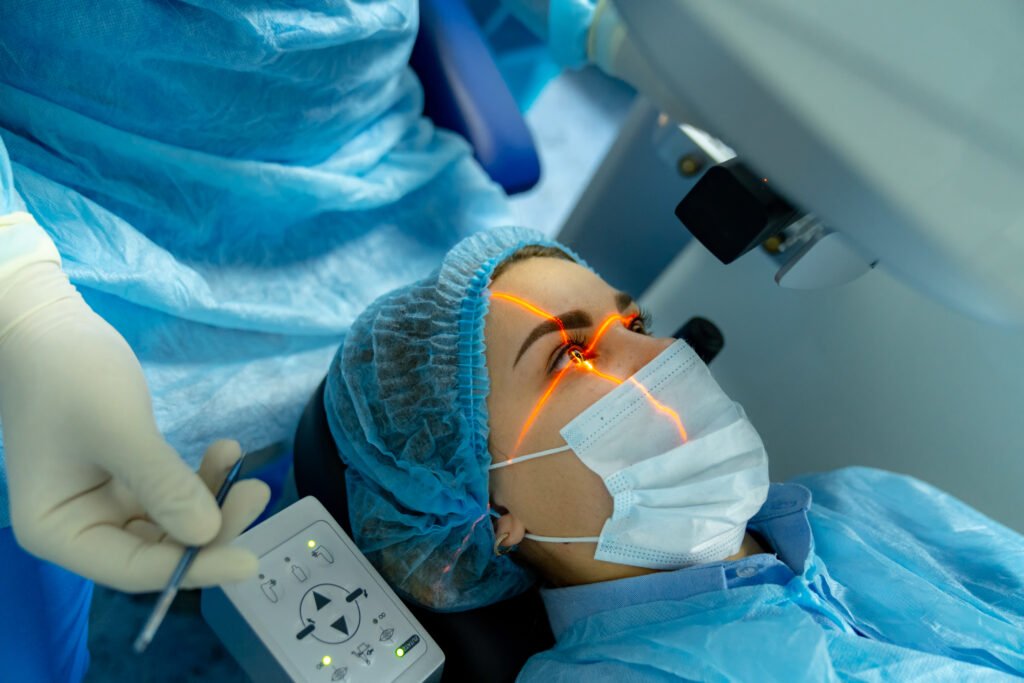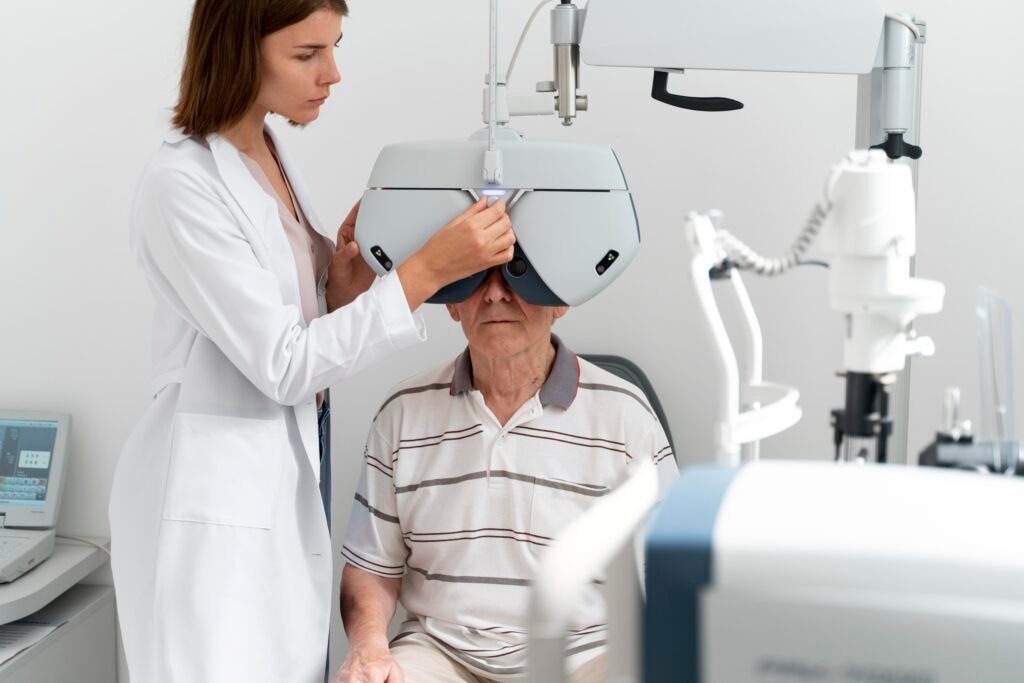The retina is the thin layer of tissue at the back of the eye responsible for capturing light and transmitting visual signals to the brain. Diseases of the retina can cause serious vision problems and, if left untreated, lead to permanent blindness. Retina care combines advanced diagnostic testing, medical therapy, and surgical procedures to preserve and restore vision.

Retinal conditions interfere with the eye’s ability to process light and send accurate signals to the brain. Some conditions develop gradually, while others can cause sudden and severe vision loss. Early detection is critical, as many retinal diseases respond better to treatment when diagnosed at an early stage.
You may require retina evaluation and treatment if you have or are at risk for:
Patients with diabetes, high blood pressure, or family history of retinal disease should have regular retina checkups.
A retina evaluation includes advanced imaging tests such as optical coherence tomography (OCT), fluorescein angiography, and fundus photography. These tests allow the specialist to examine the retinal layers in detail and detect subtle changes. The consultation also includes a thorough eye exam and discussion of treatment options.

There is no special preparation for most evaluations, though your pupils will be dilated for a comprehensive exam. If surgery is needed, preoperative instructions will include fasting, arranging for a companion, and following prescribed medication adjustments.
Retina surgery varies depending on the condition but may include:
Vitrectomy: Removal of the vitreous gel to treat retinal detachments, macular holes, or bleeding.
Laser therapy: Used to seal retinal tears or control abnormal blood vessel growth.
Injections: Anti-VEGF or steroid medications directly into the eye to treat macular degeneration, diabetic retinopathy, or swelling.
Procedures are performed under local or general anesthesia, with many done on an outpatient basis.
Key Benefits Include:
Recovery depends on the type of treatment. After injections or laser therapy, recovery is typically short. After vitrectomy or more complex surgeries, recovery may take several weeks, and patients may need to maintain specific head positions for proper healing. Follow-up visits are essential to monitor progress and prevent complications.
Retinal diseases often require ongoing management. Regular follow-up visits include repeat imaging, visual acuity testing, and adjustments to treatment as necessary. Many conditions, such as diabetic retinopathy and macular degeneration, require long-term monitoring and therapy.
No, anesthesia is used to ensure comfort.
Some treatments provide quick results, while others require weeks or months for full recovery.
Many treatments stabilize or improve vision, though some diseases are chronic and require ongoing care.
Risks vary by procedure but may include infection, bleeding, or cataract development.
Only a retina specialist can determine the best treatment after a full evaluation.

Tu visión merece estar en manos expertas. En Punto Visión te ofrecemos atención personalizada, tecnología de vanguardia y la confianza de especialistas altamente preparados. Da el primer paso hacia una mejor salud visual y agenda tu consulta ahora.